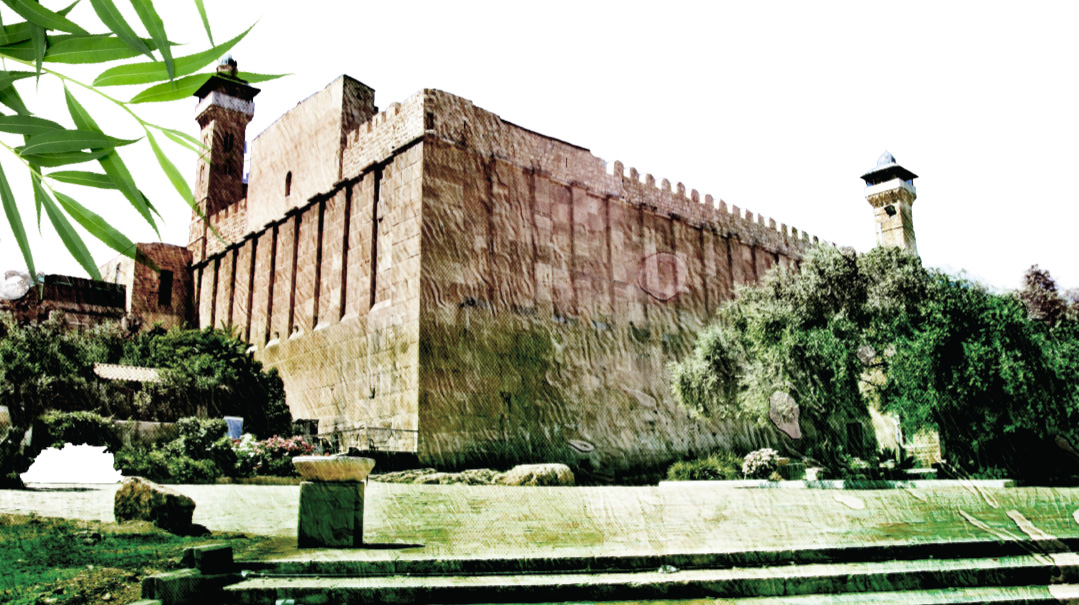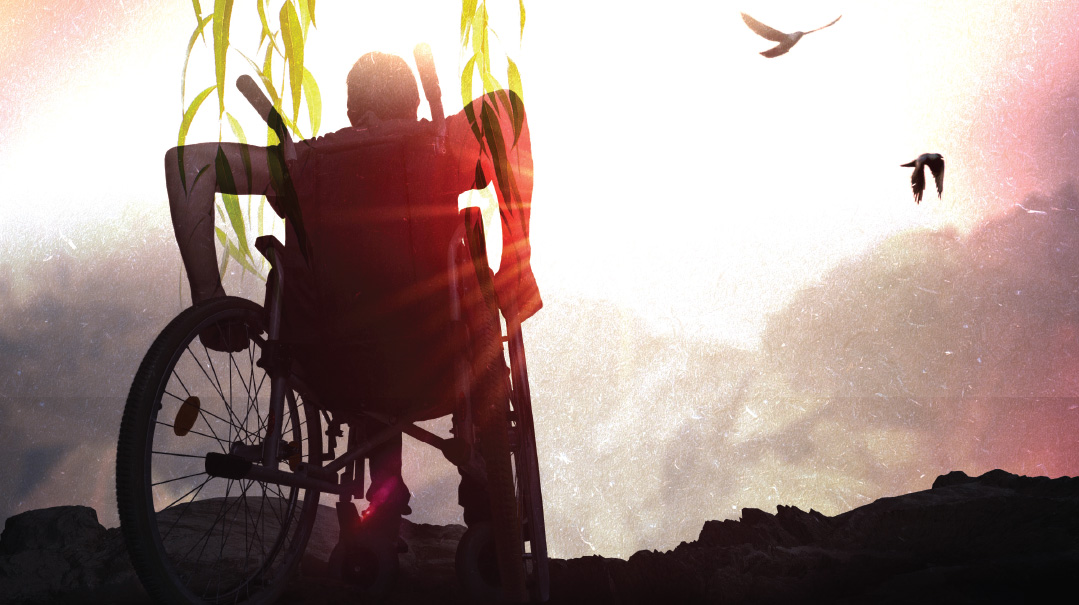Tight Squeeze
| October 6, 2022We cry out and He responds

As told to Shterna Lazaroff by Rochel Lazaroff
“I’m going to sit down,” I told my husband, gesturing to one of the last remaining seats on the bus. I wanted time to focus before we arrived in Chevron. There was so much to think about, so much to daven for.
Our visit to Eretz Yisrael was a nice break, but the entire time, I could think of nothing but our lives back home. My husband and I run Aishel House in Houston, Texas, a bikur cholim home that caters to patients at Texas Medical Center, the largest medical complex in the world.
Unfortunately, between the dozens of hospitals in the complex, there were many, many Jewish patients passing through Houston. We helped them with kosher food, chaplaincy, general support, and housing. Our shlichus kept us quite busy — until it didn’t.
Most of the people who’d leaned on Aishel House heard about us from my husband, a certified hospital chaplain. He’d seek out the Jews, pay their hospital room a visit, and invite them to call us for anything, really, anything.
But because of new bureaucracy and red tape, my husband couldn’t visit the hospitals anymore. At first, we were still busy with the people we already knew, but as the months passed and many returned home, we had no new crowds taking their place.
“We know there are Yiddisher families out there — but how are we going to reach them?” I kept asking my husband. With no way to let people know about our bikur cholim center, I was afraid we wouldn’t be able to help more people. No new families to host, no new patients to feed, no new Yidden to connect with. Should we continue fighting to reach the hospitals or find a new channel for our shlichus?
During this time, my husband and I went to Eretz Yisrael for a wedding, which one of our former Aishel House guests was making. I used the chance in our Holy Land to daven as much as I could.
The trip to Chevron was no different. Even on the bus to the kevarim, I was already crying over my Tehillim. Hashem, we’re doing this all for You. Please help our shlichus continue.
Through the haze of my tefillos, I felt people cram more closely as the bus filled up. With the packed crowds, my husband got pushed toward the front of the bus, away from me.
At the Davidka station, the bus driver stopped, opened the doors, and then looked back to see the crowded bus. “We can’t let anyone else on,” he said. There wasn’t another inch for anyone else to stand.
He started closing the doors so no one could squish onto the bus.
A young couple stuck their hands in the door to stop it. “No, no, please!” they begged the driver. “If we don’t catch this bus, we won’t be able to go to Chevron at all.” It was their last day in Eretz Yisrael, they explained. Was it possible to please, please, make a little bit more room?
“Betach!” the driver agreed. He opened the doors again and shouted to those in the back, asking everyone to squish some more so the couple could get on. More shuffling. I saw my husband greet the new couple, then turned back to my Tehillim.
In Chevron, I went straight to Kever Avraham Avinu and continued my tefillos. My heart felt squeezed and shattered. We’d built our shlichus over decades. Now it was collapsing, and I was deflating. Everything we’d worked for was sinking in quicksand, and I didn’t think I had the koach to fight anymore.
I turned to the next kapitel. Hashem, I trust this shlichus is where we’re supposed to be… so please give us the chizuk.
Someone called my name. It was my husband. He was standing next to the couple from the bus and smiling.
“Do you know who we are?” the woman asked.
I scanned my memory, but couldn’t pull them up. “No, have we met before?”
“Actually, we never did, but we still owe you a thank you,” the husband said. His wife had been hospitalized in Texas Medical Center, and apparently, we’d helped them, sending them food. My husband explained that he and the couple made the connection when they chatted on the bus.
“I never had the chance to stop by and thank-you,” the woman said. “It was a hard, dark time for us, but the whole time, we knew we weren’t alone. There was a family down the block taking care of us. Not because we asked them to, but because we are Yidden, and you care. We’ll never forget what you did for us.”
I pulled her into a hug. “Thank you for telling me.” Then I looked up for a second and sent a tefillah of gratitude. Thank You, Hashem, for showing me.
I had left for Eretz Yisrael feeling worn down. My husband and I came back with a chiyus that’s lasted until this day. After that encounter, instead of embarking on a new shlichus, we built a beautiful 23-unit apartment building for families to stay in. We added new programs, reached out to new hospitals, and expanded our volunteer base.
I no longer need a sign that I’m doing the right thing. I have it. It’s the sight of a couple pushing onto a bus and the sound of their gratitude outside Kever Avraham Avinu. It’s the haze of my tears beside the kever, and the pain in my request that Hashem answer my tefillos.
He did, and our fire was reignited with an undisputed reminder to continue our mission.
(Originally featured in Family First, Issue 813)
Oops! We could not locate your form.






